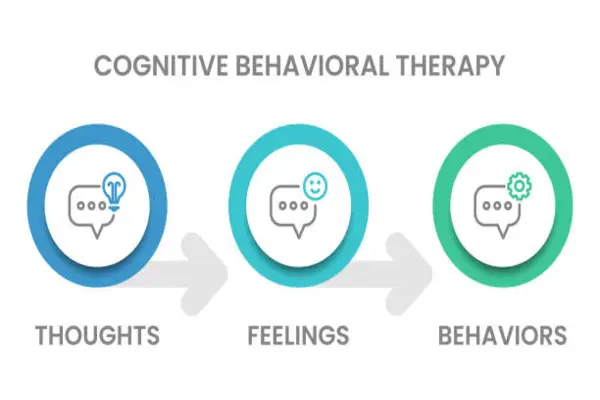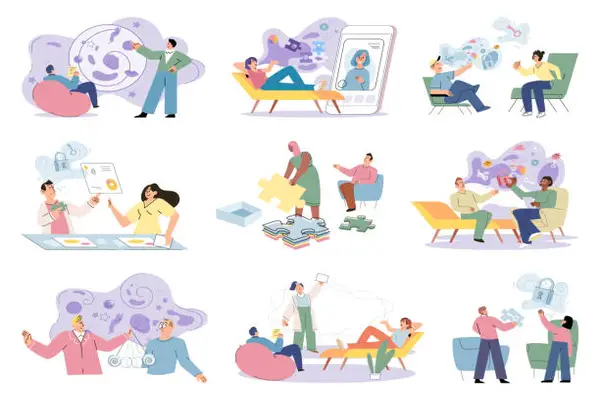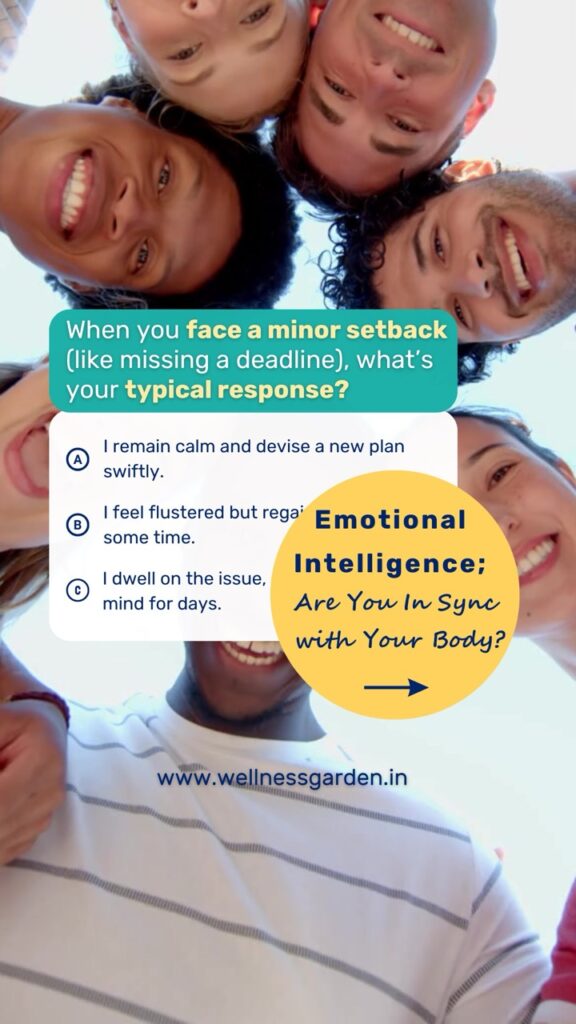Unlocking the Powerful CBT techniques for Mental Health
- Harmony
- 3 min
- June 18, 2024
- Aaron Temkin Beck
- Anxiety, Behaviour Health, Stress
The basis of CBT is a belief that our feelings, opinions, and habits are interrelated. A cycle of emotional suffering can be caught by negative mental habits. You will recognize these patterns and cultivate more logical habits of thought with the support of CBT techniques.

Introduction
Are you facing anxiety or sadness, or do you feel like you’re trapped in a never-ending loop of bad feelings? Are you aware of cognitive behavioral therapy, or CBT techniques, and have you confused if it could be an appropriate choice for you? Just respond to these inquiries in a few seconds:
- Do you frequently feel that you’re too stressed out or nervous?
- Do your relationships with others and everyday activities struggle as a result of negative feelings?
- Do you like to build useful skills for controlling your emotions?
This article helps you if any of the following queries have a “yes” response. We will explore the basics of CBT techniques, offering viewpoints on its methods, positive aspects, possible issues, and what one can expect from therapy visits. Recognizing how CBT functions can help you, whether you’re in Bangalore or elsewhere, to get better health.
What is Cognitive Behavioral Therapy (CBT) ?
To assist you in overcoming those concepts and behaviors, CBT mixes two cognitive methods:
- Cognitive therapy is about examining what you are thinking.
- Behavior therapy includes evaluating what you’re doing.
An organized kind of psychotherapy called cognitive behavioral therapy (CBT) gives you strategies to better control how you feel while sustaining your mental well-being introduced back to the 1960s, when psychiatrist Aaron Temkin Beck, M.D. from Yale University, recognized how particular patterns of thought were linked to emotional issues. These were dubbed “automatic negative thoughts” by Beck, who originated the cognitive therapy method.From CBT techniques, you will learn techniques to improve your pattern of thought and cultivate healthy emotional actions; it’s like going to the fitness center for your mind.These days, a lot scientific research has been done on cognitive behavioral therapy (CBT) as an efficient treatment for a range of chronic illnesses, such as using drugs, eating disorders, anxieties,PTSD and depressive disorders.
The American Psychological Association describes the following as the basic principles of CBT:
- Psychological issues are partly based on problematic or unhelpful patterns of thinking.
- Building abilities to change unhelpful behavior while improving and controlling one’s emotions.
- Working on the relationship that exists between concepts, feelings, and actions.
- Adopting goal-oriented strategies and planned training of becoming more effective in lives.
In what conditions can Cognitive Behavioral Therapy(CBT) be helpful?
A dynamic alternative to medication for an extensive list of emotional difficulties and mental disorders is cognitive behavioral therapy (CBT). Below are some conditions in which CBT techniques can be highly beneficial:
- Anxiety Issues: Cognitive Behavioral Therapy (CBT) is the first phase of treatment for a number of anxiety illnesses such as social anxiety disorder, panic attack disorder, generalization of anxiety, and fears.
- Depression: Cognitive behavioral therapy (CBT) is a popular treatment for depression as it helps patients to identify and alter the adverse mental habits that cause feelings of futility and sadness.
- Obsessional-Compulsive Disorder (OCD): Helps control compulsive actions and obsessive thinking.
- PTSD: CBT is an effective therapy for post-traumatic stress disorder (PTSD), which is characterized by behavioral avoidance, recurring nightmares, and hallucinations.
- Eating Disorders: CBT techniques proves helpful to those with excessive eating chaos, bulimia nervosa, or starvation nervosa. It may help in finding the causes of bad eating habits.
- Managing Anger Issues: CBT assists persons with analyzing what makes them angry, creating healthy coping strategies for when they feel angry, and seeking beneficial ways to let their emotions out.
- Low Self-worth: Cognitive behavioral therapy assists in identifying self-defeating beliefs, creating self-love exercises, and tackling false thought patterns that result in poor self-esteem.
How does Cognitive Behavioral Therapy function?
CBT involves both the patient and the medical professional teaming up, with the client taking an active role in their own rehab while the therapist offers its direction. Usually, treatment goes like the following:
- Evaluation: In order to figure out the patient’s problems and set therapeutic objectives, the therapist performs an initial testing.
- Finding Negative Views: The therapist works with the patient to find the particular negative ideas and attitudes that are causing them discomfort.
- Challenging and Reorganization: People can learn to confront these negative mindsets and switch them out for more practical and constructive ones by employing a variety of strategies.
- Cognitive Measures: The therapist offers methods for changing behavior, promoting helpful deeds that sustain improved mental habits.
- Daily duties; As a way to build on what they’ve studied outside of therapeutic sessions, patients regularly receive tasks for implementing new abilities and practices.
CBT Techniques for cognitive behavioural treatment
CBT uses several kinds of approaches to assist individuals in changing their behavioural and mental structures.Our counselor will customize the particular CBT operations to meet each of your needs and targets.

- Mental restructuring is the process of considering, inquiry, and switching out unfavorable or unreasonable ideas for sensible alternatives.
- Behavioral stimulation: Fostering completion and enjoyment through actions as a means of overcoming anxiety.
- Through the use of exposure therapy, you can become more familiar with triggers or dreaded events in a secure setting. You can lessen avoidance habits and learn how to control your anxiety via regulated treatment.
- Through role-playing, you may enhance communication and coping mechanisms for difficult settings by recreating real-world scenarios in therapy. This can be especially beneficial for enhancing self-confidence or social encounters.
- Using mindfulness exercises and relaxation methods simultaneously may assist you manage anxiety and stress better.
- Coaching in Problem-Solving Strategies: CBT techniques gives you an organized approach to recognize issues, create ideas for solutions, weigh your choices, and decide on the best plan of operation.
CBT Techniques : Pros & Risks
Benefits
- Efficacy CBT has been proven to be beneficial for treating an extensive variety of mental health conditions.
- Short-Term Orient: CBT can often be shorter-lasting than other therapy; many patients notice benefits after as few as 12 to 20 sessions.
- Qualities-Based: This method fosters long-term happiness by helping clients gain valuable abilities that they can apply apart from therapy.
- Systematic Strategy: Because CBT is precise, it’s simpler to follow development and make changes that are needed.
Potential risks
- Emotional Difficulty: It can be unpleasant to talk about and face unwanted feelings and ideas.
- Time dedication : Needs time and energy for homework assignments as well as during sessions.
- Early Symptom Boost: When beginning counseling, some people may have a brief rise in disturbing experiences.
Conclusion
An active, researched method, cognitive behavioral therapy can assist people between the ages of 18 to 45 in resolving a variety of behavioral disorders. By being aware of the CBT procedure, advantages, dangers, and methods, you may decide if this therapy is appropriate for you.In addition, it works well for older individuals, teenagers, and children, making it a flexible therapy for a range of age groups. Finding a licensed CBT therapist, whether in Bangalore like Specialized CBT treatments are provided by renowned organizations like the National Institute of Mental Health and Neurosciences (NIMHANS) and private practitioners. or somewhere else, may be a starting point in enhancing your emotional health and leading a more maintained, healthy life.
A Word From WG
Wellness Garden is your committed partner in seeking comprehensive natural and holistic therapies to address all your pain and wellness requirements. Our approach encompasses the entirety of your body, mind, and environment, integrating body, mind, and nutrition therapy and various other back pain therapies and techniques.
Whether facing physical or mental health concerns, life hurdles, or simply aiming to enhance your overall well-being, we’re here to provide the support you need. Get in touch with us to explore the possibilities and embark on your journey towards holistic therapy and improved health.
- Table of Contents
- • Introduction
- • Conditions
- • Functions
- • A Word From WG
Recent Posts
Join Our Newsletter
End note from WG Team
Dr. Geetha Kamath
Disclaimer: This information is provided for educational purposes and should not be construed as medical advice. Please consult with healthcare practitioners before undertaking any changes in wellness routines or adding new therapies.
Latest Blogs
Check out some of your blogs related to your interest.
- February 7, 2026
- NIH
- 3 Mins

- January 4, 2026
- Marc Cohen, MBBS (Hons)
- 3 Mins
- December 28, 2025
- Dr. Pauline Boss
- 3 Mins
- November 30, 2025
- Dr. Peter Levine
- 3 Mins





